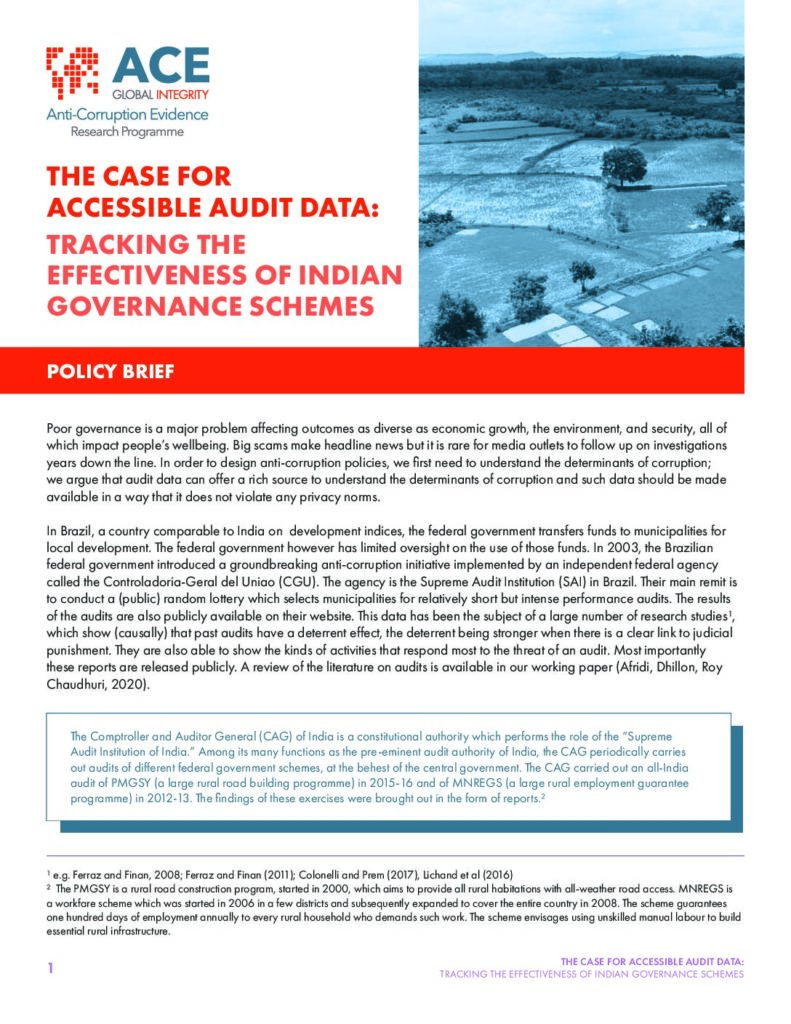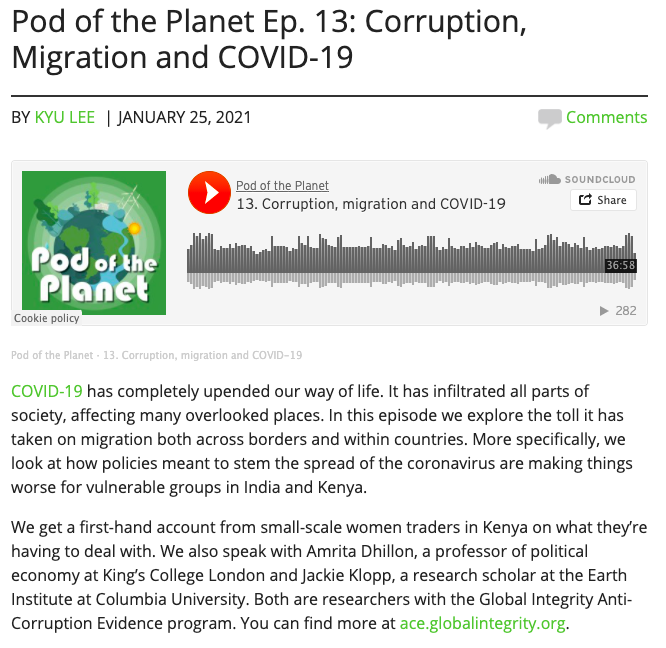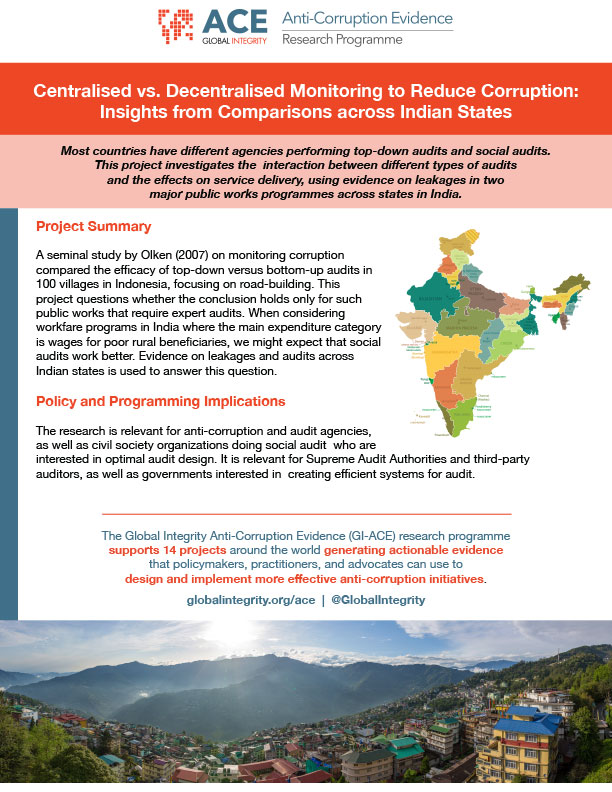Centralised versus decentralised monitoring to reduce corruption: Insights from comparisons across Indian states
Most countries have different agencies performing top-down audits and social audits. This project investigates the interaction between different types of audits and the effects on service delivery, using evidence on leakages in two major public works programmes across states in India.
Click here for the Project One-Pager
To learn more about this project, contact Principal Investigator Amrita Dhillon.
Project Summary
A seminal study by Olken (2007) on monitoring corruption compared the efficacy of top-down versus bottom-up audits in 100 villages in Indonesia, focusing on road-building. This project questions whether the conclusion holds only for such public works that require expert audits. When considering workfare programs in India where the main expenditure category is wages for poor rural beneficiaries, we might expect that social audits work better. Evidence on leakages and audits across Indian states is used to answer this question.
Policy and Programming Implications
The research is relevant for anti-corruption and audit agencies, as well as civil society organizations doing social audits who are interested in optimal audit design. It is relevant for Supreme Audit Authorities and third-party auditors, as well as governments interested in creating efficient systems for audit.
Research Questions
- Do social accountability initiatives work better in states where citizen awareness is high and in programmes that have personal, rather than collective, benefits for citizens?
- How do social audits and top-down audits compare in effectiveness across the two programmes and across the different states?
- How does the success of each type of audit depend on the degree of electoral competitiveness of the constituency?
- When top-down audits are used, how does the design of audits (e.g., random timing, frequency of audits) affect the success?
Methodology
The methodology used in this project involves comparing different areas that have been exposed to top-down audits and social audits differentially across states in India to understand whether exposure to greater frequency / intensity of audits leads to better outcomes. The current audit methodology will be critically analysed to seek improvements in the audit process.
Research Team Members
- Amrita Dhillon, Professor of Economics, King’s College London
- Eilon Solan, Professor of Mathematics, Tel Aviv University
- Farzana Afridi, Associate Professor of Economics, Indian Statistical Institute, New Delhi
- Arka Roy Chaudhuri, Assistant Professor of Economics, Shiv Nadar University, New Delhi
- Chang Zhao, Assistant Professor of Economics, Nanjing Audit University











